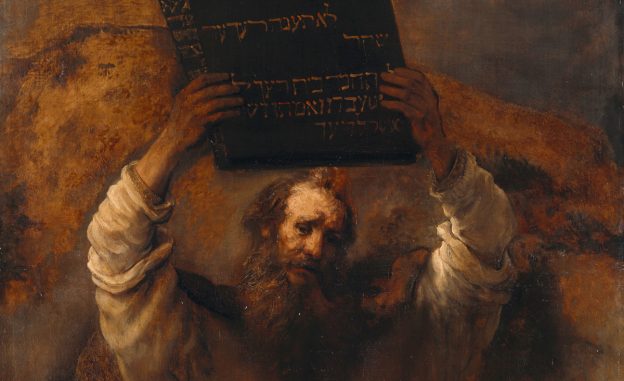God’s declaration that he would not go to the Promised Land with his people, because their sinful nature might result in their destruction, led to repentance from Israel. But this had not yet led to a restoration of God’s presence with them. Were they still really God’s people? So Moses entered the Tent of Meeting to make three requests of God concerning his presence. Moses asked for guidance from God, the presence of God, and a vision of God’s glory.
The first request was made for Moses’ benefit as the leader and mediator of God’s People. God had commissioned Moses to lead Israel and supported him in the role, because Moses was unable to do it by himself. Now, Moses was unsure if God himself would come with them or not (v.12).
Playing on the ambiguity God expressed regarding “an angel” going with Israel (v.2), Moses used his status as God’s friend to ask God to “show me now your ways, that I may know you in order to find favor in your sight” (v.13). Moses wanted to know God and continue in communion with him so that he would know the thinking and reasons behind God’s plans.
This knowledge would help Moses learn and anticipate the right way to act to please God. There would be benefits for Israel too: “consider too that this nation is your people” and so if Moses led well, with more understanding than just the marching orders (so to speak), it would be beneficial for Israel as a whole.
God responds positively to this request, saying that “my presence will go with you, and I will give you rest” (v.14). God agreed that he would continue to guide Moses in person, and that he would soothe Moses’ anxieties over leading the people by himself.
Notably, however, God’s agreement in verse fourteen is in the singular, not the plural. The personal presence and rest was for Moses alone, not for all of Israel. So Moses made a second request, this time for the people – that God would go with all of them.
Moses identified himself as the mediator with Israel and proclaims “If your presence will not go with me, do not bring us up from here” (v.15; some translations read “with us” because otherwise it sounds like Moses is contradicting God’s immediately made promise rather than identifying himself with Israel).
He sweetens the argument by pointing out how God’s presence with Israel would set them demonstrably apart from the other nations surrounding, thus advancing God’s plan (v.16).
God agreed again to Moses’ prayer, because “you have found favor in my sight, and I know you by name” (v.17). In other words, God agreed to accompany Israel because of Moses, their mediator. Israel had not changed enough for God to reconsider, but Moses’ acts were enough for God to reconsider.
With God’s presence with Moses and Israel secured, Moses made one further request for himself: that God would reveal his glory to him (v.18). While Moses has already seen glimpses of God’s glory in the burning bush, in the glory cloud, and in viewing God’s “feet” in the covenant ratification meal at Sinai, now Moses has asked for a direct perception of God’s being! Don’t ask, don’t get…
God’s answer was a “yes and no” response. God would reveal his goodness, proclaim his covenant name, and reveal his sovereign and compassionate nature, but a direct revelation of God’s divine nature is too far beyond creaturely comprehension and would result in death (vv.19-20).
To enable even this to happen, God would hide Moses in the cleft of a rock, and shield him from the full radiance of his glory, allowing Moses to gaze on the after-effects (God’s “back” as opposed to his “front”) so that Moses would not perish as a finite person trying to comprehend the infinite God (vv.21-23).
The question of how we as finite beings can truly know and understand the infinite God did not end with Moses, and plenty of people have sought or claimed to have an unmediated interaction with God. But the answer to the question of how we can truly comprehend God’s goodness, covenant love, and his sovereign and compassionate nature is in Jesus Christ.
Jesus is the very image of the invisible God, and “in him all the fullness of God was pleased to dwell” (Colossians 1:15,19). God has shown us “the light of the knowledge of the glory of God in the face of Jesus Christ” (2 Corinthians 4:6), the glory which Moses sought to see.
Just as God agreed to be present with his people because of Moses’ merit, so too God is pleased to dwell with us as his people because of our mediator’s merit. It is not our own deeds or repentance that ultimately paves the way for God’s presence with us, but the merit of Christ’s perfect work and his sacrifice on the Cross in our place.
In Christ’s mediation, we enjoy communion with God and the rest he gives.

